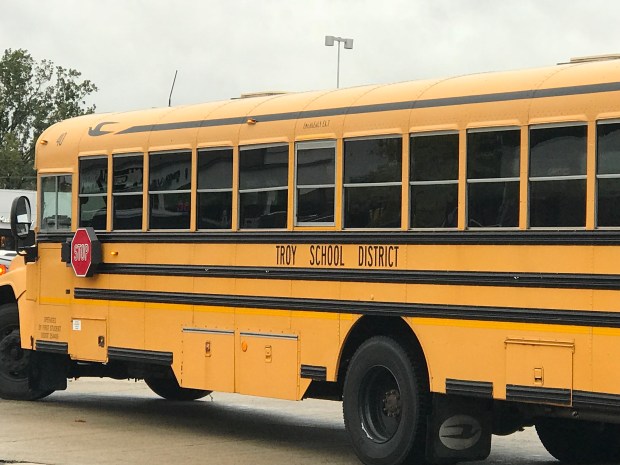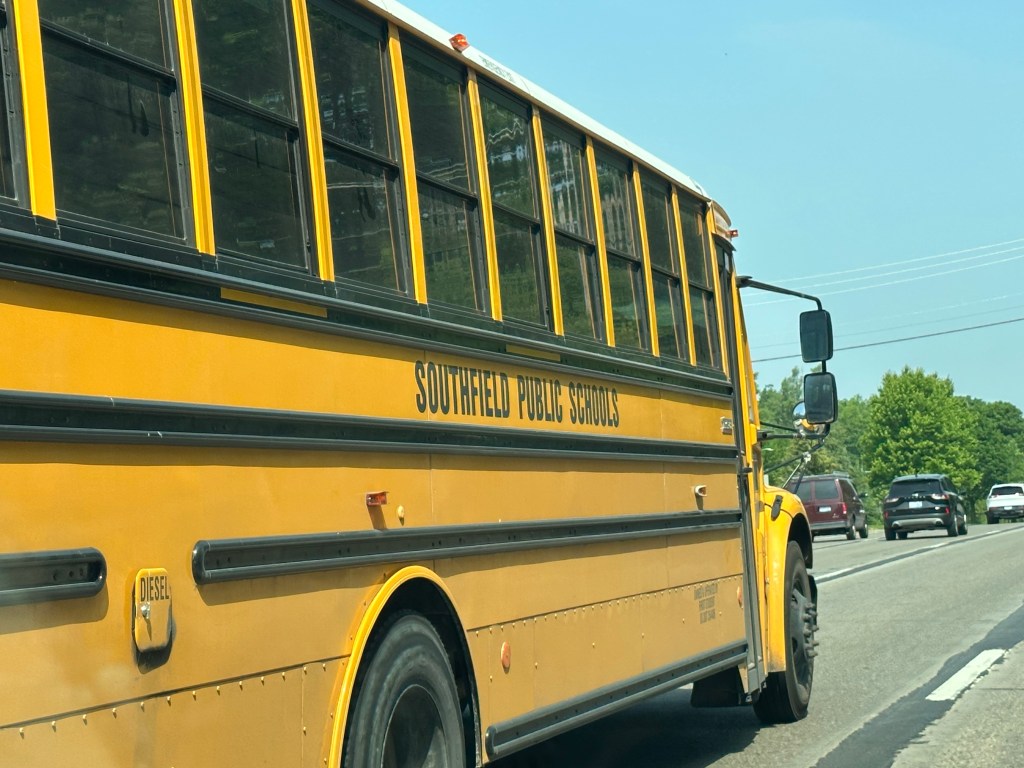School districts across the state, including four in Oakland County, will receive millions of dollars in grants to add electric and propane buses to their fleets.
The $35.9 million awarded to 23 school districts will add 87 electric buses and 10 propane buses with funding from the state education department’s Clean Bus Energy program.
Four Oakland County districts – Ferndale, Southfield, Troy and West Bloomfield – were awarded more than $6 million for 16 electric buses.
Public school districts can receive up to 70% of the cost of an electric school bus, charging station and infrastructure. The program also works to prioritize high-need districts, examining criteria like income, environmental risk factors, and rural or indigenous populations. Schools that meet these criteria are eligible for additional funding to cover up to 90% of the costs.
SOUTHFIELD
The grants have helped kickstart changes in the Southfield schools transportation department.
They received $3.72 million in this round of funding for 10 electric buses. Combined with money they received in the first round in 2024 and one federal grant, Southfield will have 20 electric buses in their fleet by the start of the 2026-2027 school year.
“This is a huge win for Southfield schools,” said Southfield Chief of Staff James Jackson. “This is a great opportunity for our district and we are really excited about it.”
The first set of 10 buses will arrive this year and put into use in their 80-bus fleet.
According to Jackson, there will be minimal logistical issues with reconfiguring their bus yard to accommodate charging stations and access to a DTE power source.
“We are currently installing our charging stations and they will fit well within the space that we have and we will not have to make any significant changes to our bus yard or access to charging station power sources,” said Jackson. “It will even be in a convenient enough area that some of the staff that have electric vehicles can use the chargers as well.”
The electric buses will come from Cincinnati-based First Student, Inc. An electric school bus from First Student can cost between $375,000 and $400,000 per bus. The final price varies based on the specific model, charging infrastructure, and available funding from outside programs.
With the grants covering only 70% of the cost, Jackson said First Student will help bridge the gap in the short term ($70,000) and energy rebates from DTE will cover costs in the long term ($140,000) to minimize what districts will pay to integrate the buses into their fleets.
“It is not just about new buses to transport our students within the district and on trips, it is also about how we protect our environment, so there are so many things that make this a great opportunity for us,” said Jackson.
TROY
Troy will be adding four electric buses to their 70-bus fleet this year. They received a $400,000 grant from the program last year and $961,330 this year.
“We are working with DTE right now to secure power to our facility in order to install our chargers and we have been working with them for the last few months to be ready when our buses are delivered and installed in our fleet,” said Daniel Trudel, assistant superintendent for business services. “We are using an old charging station that was used to help start up our buses years ago and retrofitting it to be the power source for our new electric buses.”
As with Southfield, Trudel said there will not be any drastic logistical changes needed to park and charge the new electric buses and cycle out four of their diesel buses. Two will be delivered this year and two next year and will also be First Student buses.
“We thought four was a good number to start with based on our routing,” he said. “We will have plenty of time to see how the buses work with their range within our current system.”
On a full charge, most electric buses have a range of up to 125 miles.
Applications for a final round of grants totaling $44 million are due on Dec. 18.
 Troy will be starting out by adding four electric buses from First Student.
Troy will be starting out by adding four electric buses from First Student.
File photo. (Stephen Frye / MediaNews Group)
The state’s program is just one of several that school districts have used in the past few years for add electric buses to their fleets.
In May 2024, the Biden administration awarded just under $24 million in rebates for Michigan to help 27 districts buy 100 clean-energy buses – 97 powered by electricity and three by propane. The Environmental Protection Agency’s 2023 Clean School Bus Program was funded by the federal Infrastructure Investment and Jobs Act. Before rebate, Michigan had just 17 electric school buses statewide. There are now over 900 in use or set to be purchased across the state.
As part of the federal EPA program, Pontiac received $9.75 million in October 2024 to purchase 25 electric buses.
Applications for a final CBEG round of $44 million are due Dec. 18, 2025.

